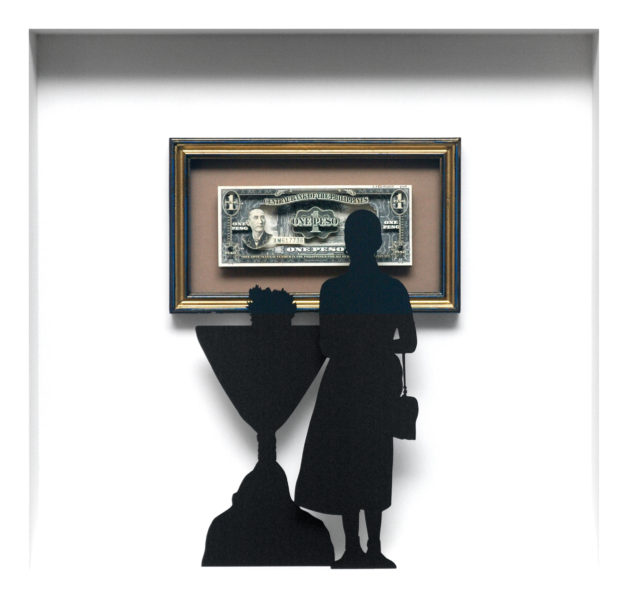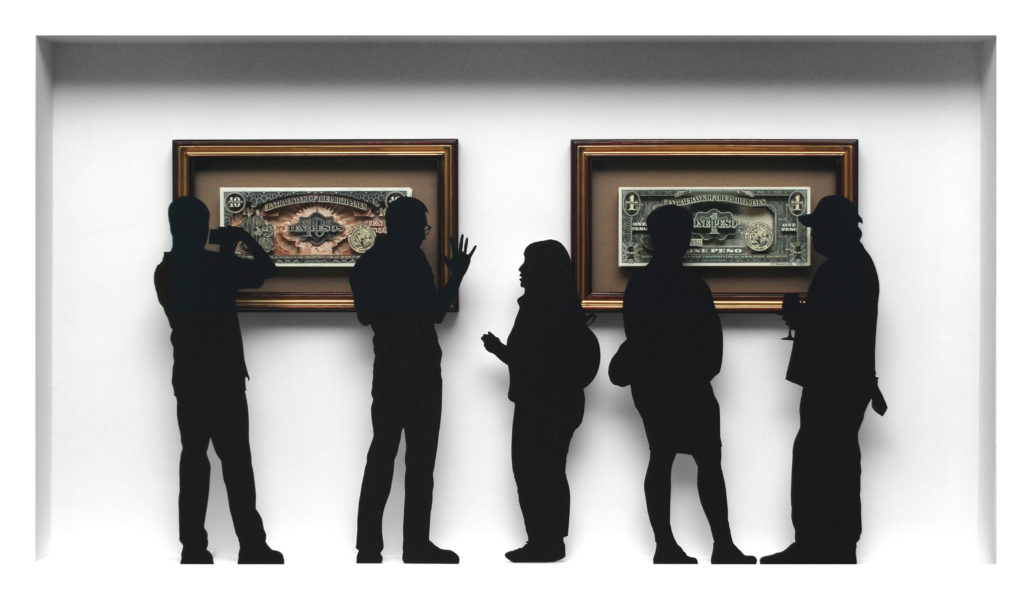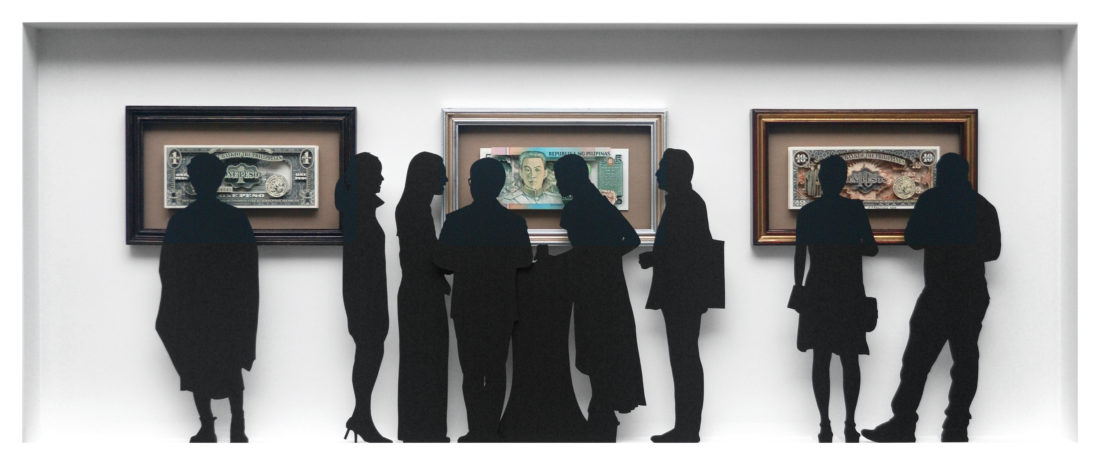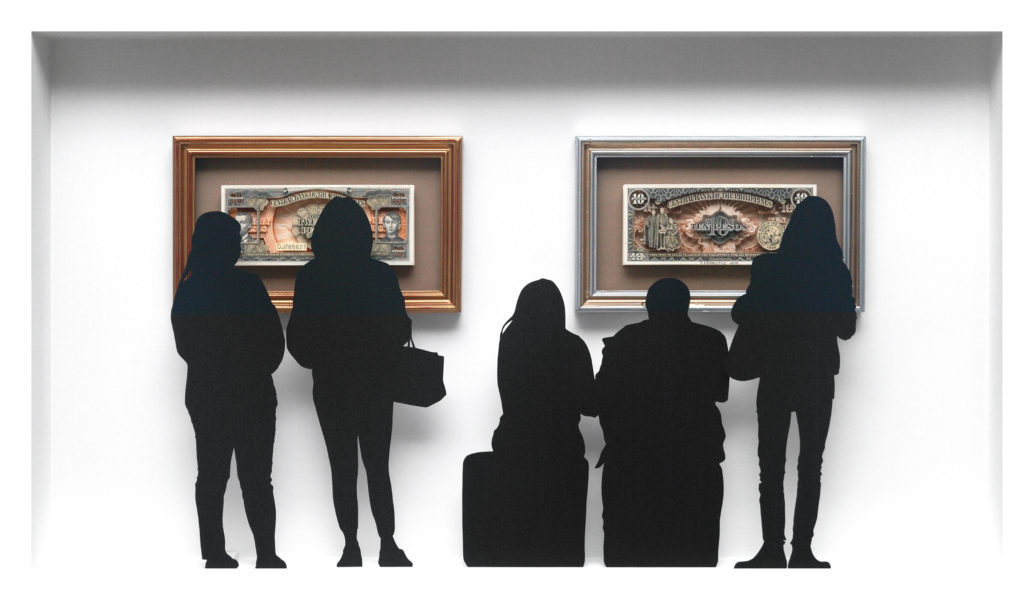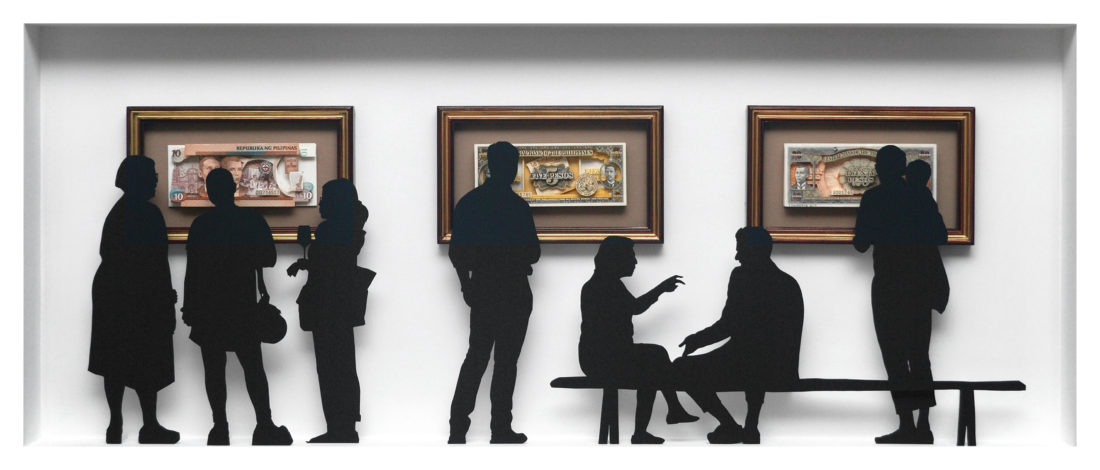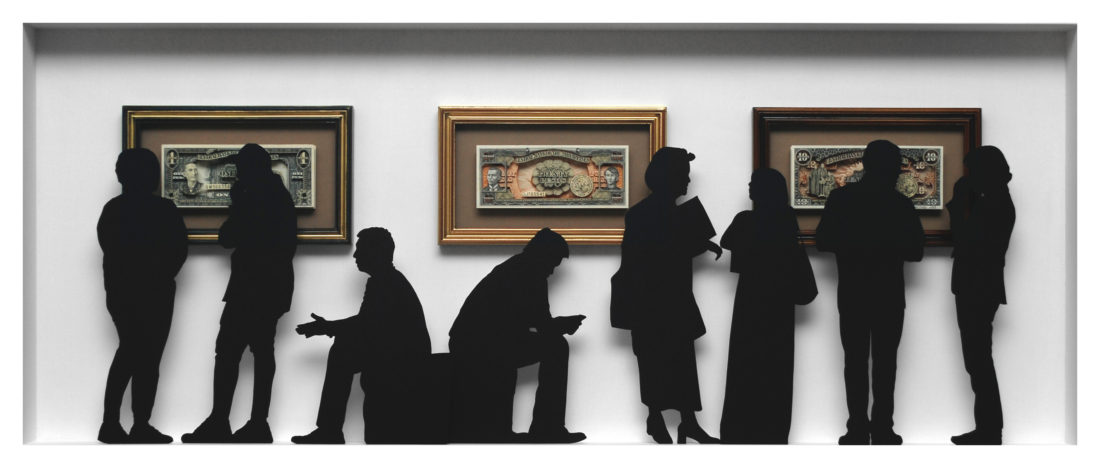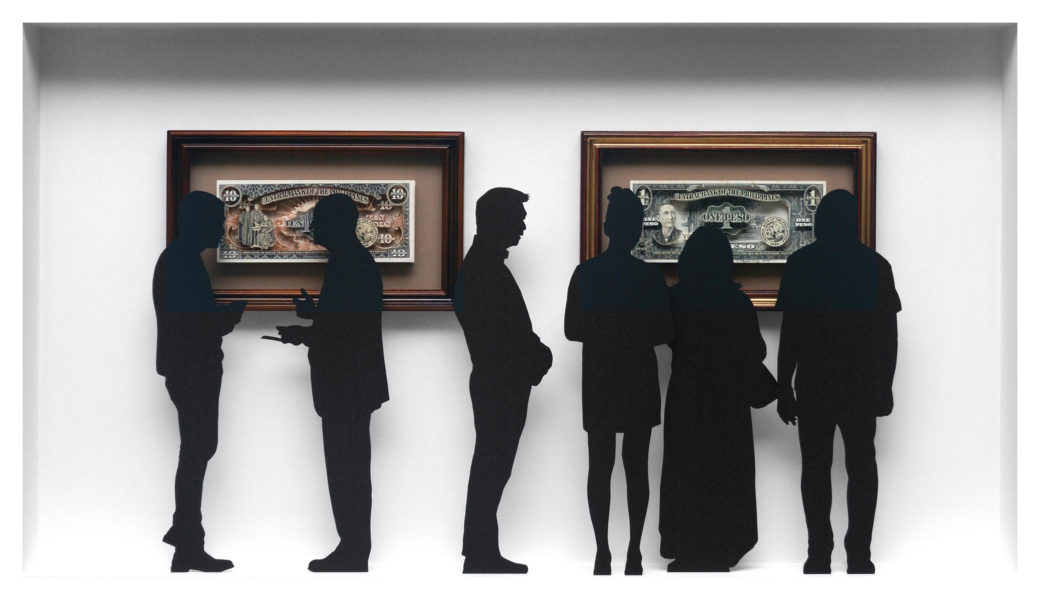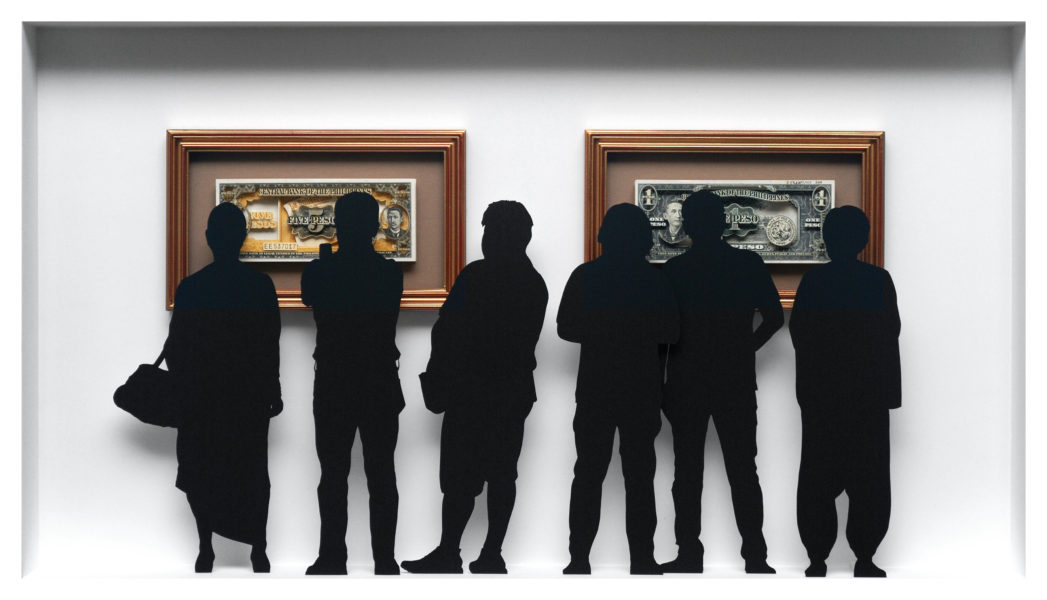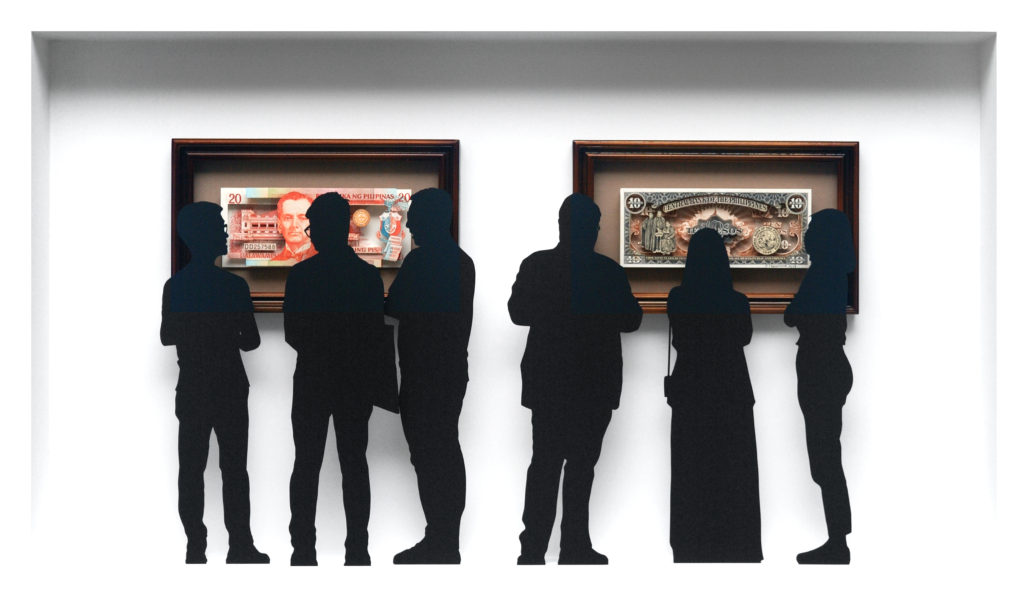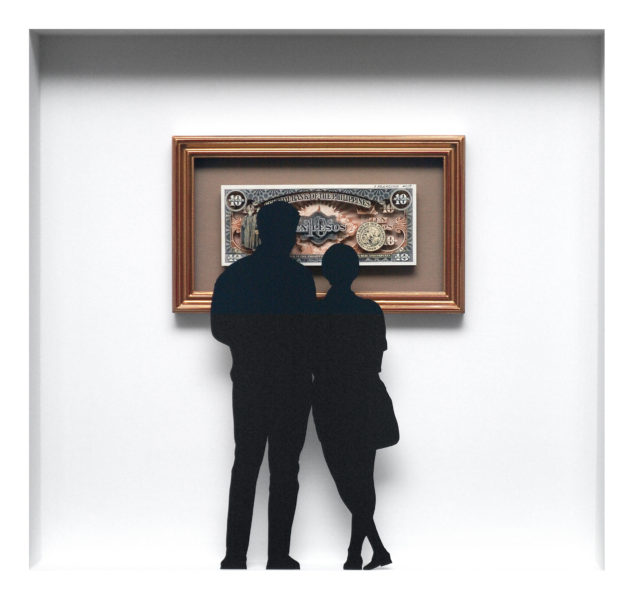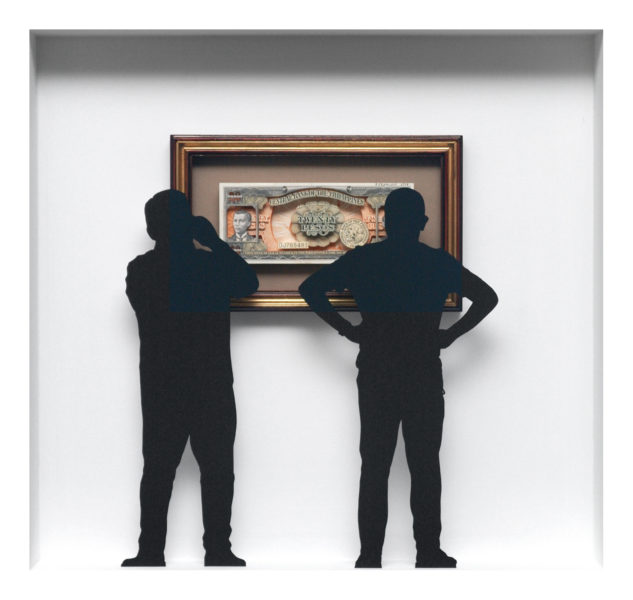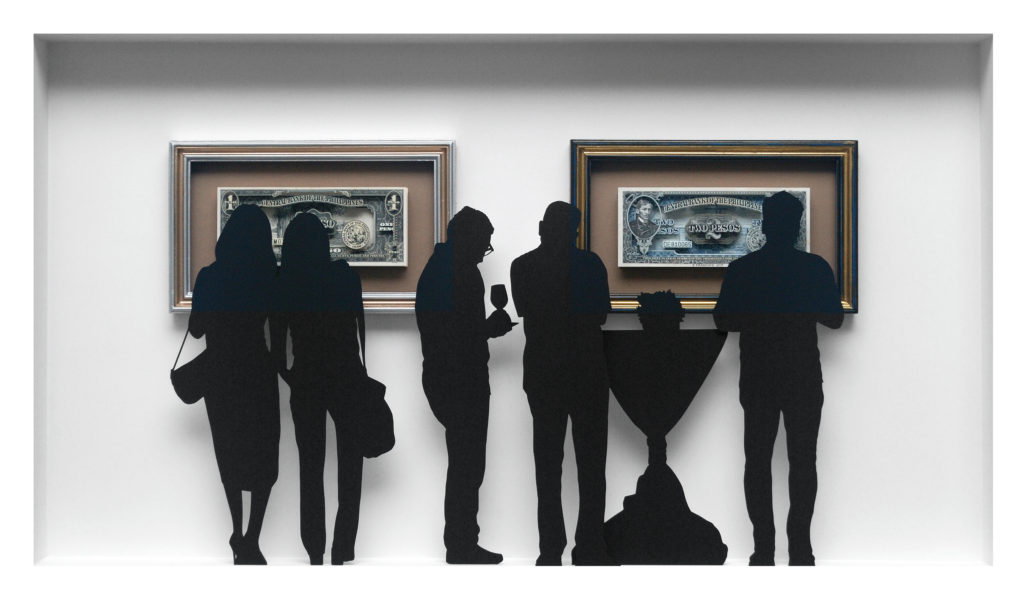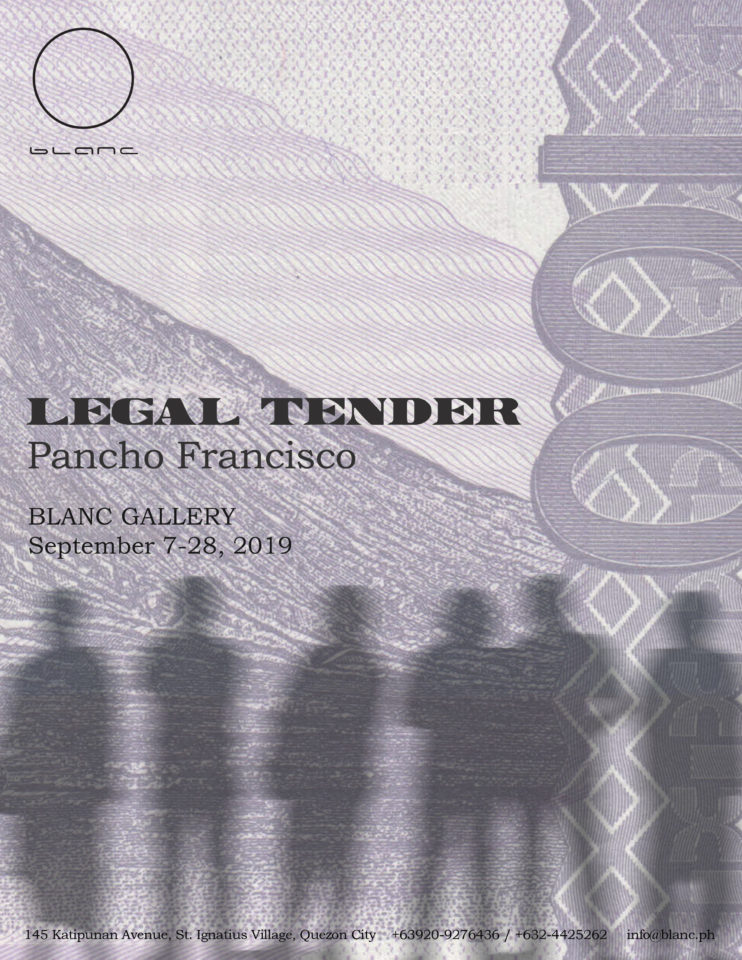
Art as Currency
Legal Tender by Pancho Francisco
Hanging on the wall, spotlighted, and regarded with reverence, a painting is usually seen as a religious object, or at least something that offers delight to the senses. It is a compelling testament to the creativity of the artist as well as to the refined sensibility of the viewer who finds pleasure in it. Extending deep roots into the long history and tradition of art, a work perpetuates the narrative of civility, culture, and the man’s collective aspiration.
It is, in some if not most cases, expensive. When Salvador Mundi, a work supposedly by Leonardo da Vinci, all the talk was about how it fetched half a billion dollars in the auction block, never mind the serious allegations about its veracity and provenance. The artistic value of the work—how it moves the soul, etc.—becomes secondary to its monetary value. Salvador Mundi is one of few works from the Renaissance with an attached price tag wherever it goes.
For a segment of the art world, a painting is not just colors on the wall, but a blue chip, a precious commodity, a luxury good, whose value accrues through time. It is this particular value of art that Legal Tender, a solo exhibition by Pancho Francisco, foregrounds. In this suite of assemblage works that takes off from a similar series in an exhibition titled, Money Shot, paintings on the wall become literal money—framed, displayed, and intervened into by the artist with his signature cutout technique. (While demonetized, the paper bills still bear numismatic value to collectors.)
Based on photographs of openings that Francisco attended, the works are snapshots of the art world in which the hushed talk about money, price, and investment is made manifest. Bearing titles as dates when the openings happened (think of On Kawara’s date paintings but with the historical event attached), the works’ replacement of paintings with money makes the commercial, transactional, and commodified nature of the art world familiar to everyone. These works extinguishing the myth and mystery surrounding what is perceived to be a generally inaccessible, if not an elitist, trade.
Viewing or milling about the works are real personalities—from artists to collectors, from gallery owners to chroniclers of the scene. Just like painting is replaced with money, they are replaced with their shadowy doubles. By having their identifying features and personalities obliterated, they become stand-ins for the denizens of the art world. Reduced to opaque silhouettes, they are transformed into secondary figures to the tableaus Francisco has created, beholden to the crisp, sharp colors of paintings-as-money.
To be sure, Legal Tender offers a critique of the art world, of how it has largely reduced art to a durable good only enjoyed by the few. But what it offers is something more immediate. By holding up a mirror to the part of the art world only few talk about, Francisco exposes the deep, invisible role of money, especially in these times when the art market seems to be heated. Rendered finally as the unseen seen, the said unsaid, money in the works of Francisco becomes a clarifying element: what else do we ultimately value aside from the price on the wall?
-Carlomar Arcangel Daoana
Works
Documentation





